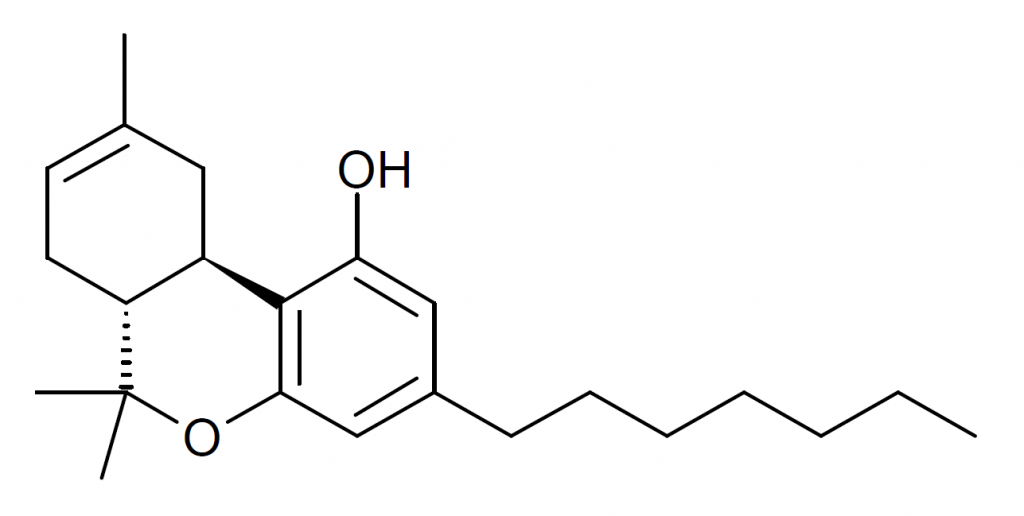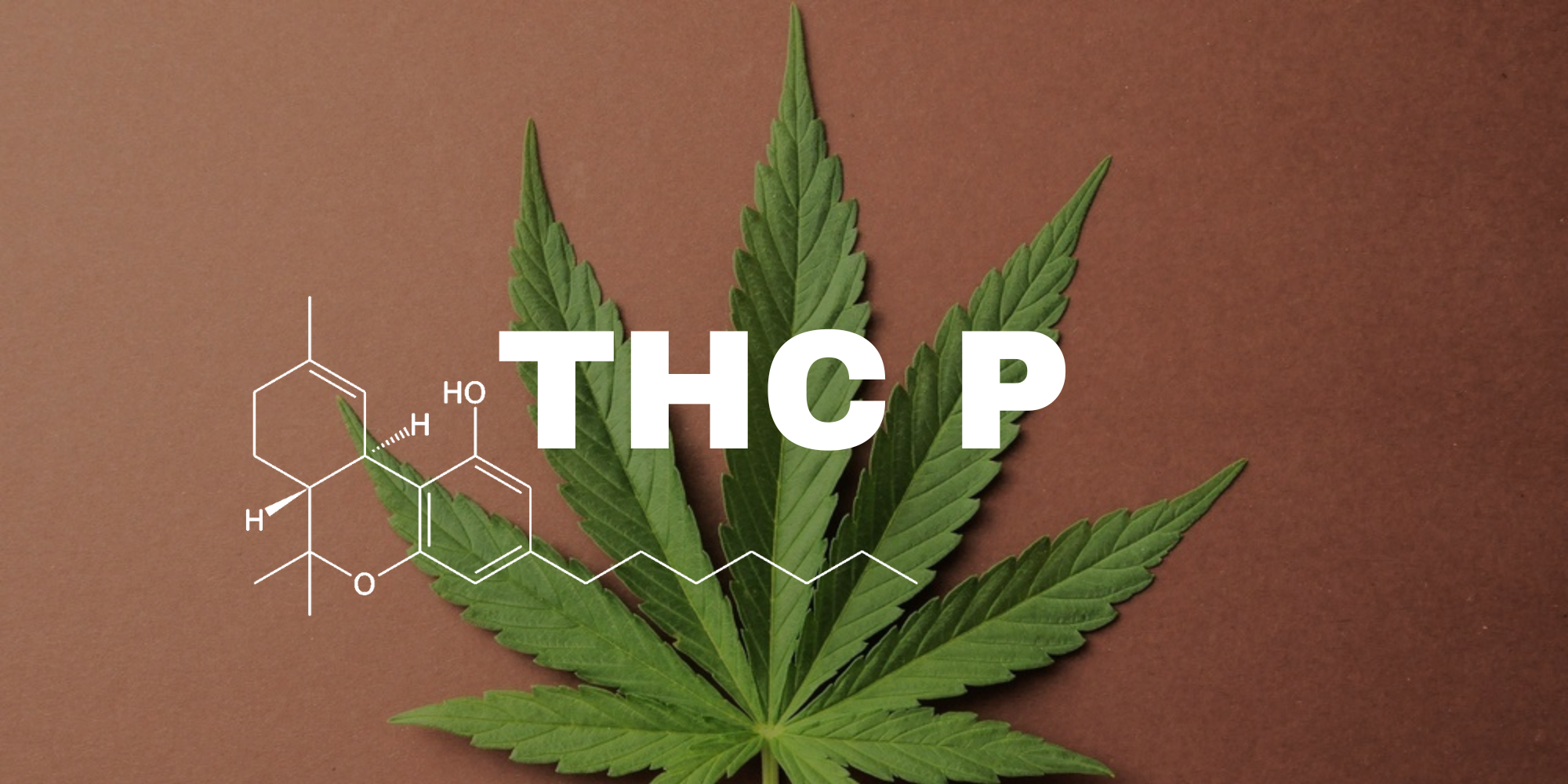Introduction: A new player in the world of cannabis
In the age of scientific exploration of cannabis, a recently discovered compound has caught the attention of researchers around the world. It's called THCP, or tetrahydrocannabiphorol. Discovered in 2019, this cannabinoid is a small molecule that, at first glance, closely resembles its better-known cousin THC, but reveals some unique characteristics on closer inspection.
This discovery opened up new perspectives on the complexity of cannabis and raised hopes of potential new therapeutic applications. Due to its particular chemical structure, THC-P appears to have a much greater capacity to bind to cannabinoid receptors in the human brain than THC, which could translate into much more potent effects.
This article explores tetrahydrocannabiphorol in more detail, its structure, potential effects, therapeutic implications, legality in France and impact on the cannabis industry.
What is the structure of THCP?
THCP is a phytocannabinoid, i.e. a cannabinoid of plant origin, which shares a common basic structure with other cannabinoids, such as THC. However, where THC has a pentyl side chain (five carbon atoms), THCP has a heptyl side chain (seven carbon atoms). This difference may seem small, but it has significant implications for the way these molecules interact with the human body.
Cannabinoid receptors, found in the brain and other parts of the body, are the main sites of action for cannabinoids. THC binds to these receptors, but THC-P seems to have an even greater affinity for these binding sites, which may explain why it appears to be so much more potent.
Studying the structure of tetrahydrocannabiphorol and its interaction with cannabinoid receptors is an active area of research, and it's possible that new discoveries about how this molecule works could lead to new or improved therapeutic applications.

What are the effects of THCP?
The specific effects of THCP on the human body are not yet fully understood. However, preliminary studies suggest that it could have far more powerful effects than THC, the best-known and most studied cannabinoid in cannabis. THCP, because of its greater affinity for cannabinoid receptors, could have significant psychotropic effects up to 33 times greater than THC.
It should be noted that these effects could vary considerably depending on many factors, including dose, method of consumption, individual tolerance and the presence of other cannabinoids and terpenes. Possible effects of THCP include intensified feelings of well-being or euphoria, altered sensory perception, muscle relaxation, changes in appetite and sleep patterns, and other as yet unknown effects.
As with any new cannabinoid, it is important to exercise caution and responsibility in its use, as long-term effects and possible interactions with other substances are not yet well understood.
⚠️ Caution: Given its structural similarity and higher affinity for cannabinoid receptors than THC, it can be assumed that tetrahydrocannabiphorol could potentially cause side effects similar to those of THC, but potentially more intensified. These effects include: dry mouth, red eyes, increased heart rate, coordination difficulties, reaction delay, paranoia or anxiety, altered short-term memory, altered sensory perception...
What are the therapeutic properties of THCP?
Although we're still in the early stages of THCP research, it's reasonable to speculate that, like other cannabinoids, THCP could have potential therapeutic applications. For example, if THCP proves to be a more potent cannabinoid receptor agonist than THC, it could be more effective in relieving pain, inflammation, anxiety, muscle spasms and other symptoms than THC.
In addition, THCP could also be of interest in the treatment of neurodegenerative diseases, mood disorders, sleep disorders and other conditions for which cannabinoids have shown some potential. However, it is important to stress that these potentialities remain largely speculative at this stage. Rigorous clinical trials will be needed to determine the efficacy and safety of THCP as a medical treatment.
Is THCP legal in France?
As with many other cannabinoids, such as H4CBDor THCVfor example, the legality of THCP is a complex issue. In France, cannabis is classified as a narcotic once its THC (tetrahydrocannabinol) content exceeds 0.3%, but THCP (tetrahydrocannabiphorol) is not on the list of controlled or prohibited substances. As a result, it is not currently illegal in France. However, drug laws are evolving rapidly, and it may be that within a few weeks, THCP will be banned in the same way as HHC and all its derivatives (HHCP, HHCO).
The cannabis industry & THCP
The discovery of THCP could have major implications for the cannabis industry. With its potentially higher potency than THC, THCP could become an ingredient of choice for producers of cannabis-based products, provided its production, sale and use are legalized in the long term.
In addition, THCP could spark increased interest in cannabis research, which could lead to the discovery of other unknown cannabinoids and a better understanding of the effects of cannabis on the human body. On the other hand, if THCP proves to have undesirable or dangerous effects, it could require increased regulation and oversight of the cannabis industry.
Whatever the case, the discovery of THCP underlines the importance of ongoing research into cannabis and its many components. As we continue to discover and study new cannabinoids, we'll be able to better understand the effects of cannabis on the body, develop new products and therapies, and navigate the complex regulatory and public policy issues surrounding this fascinating plant in a more informed way.
Good to know: Currently, the price per kilo of THCP distillate is €14 - 16k. Beware of shops that claim to sell you THCP at low prices, for example at 30%. A level of 10 - 15% is considered enormous for tetrahydrocannabiphorol. Above that level, the effect is far too powerful, and the side-effects are far too severe. What's more, if a shop claims to sell 30% THCP flower or hash at €5 a gram, you can be sure it's not true. Some suppliers don't hesitate to sell their old stock of HHCP to naive shops. A product with 30% would cost between €420 and €480 per 100 grams just counting the price of tetrahydrocannabiphorol, not counting the basic product (flowers or hash), so no shop would sell it for €500 per 100 grams. If you're a shop and you're unsure about a low-priced THCP product, we'll be happy to analyze it for you.

